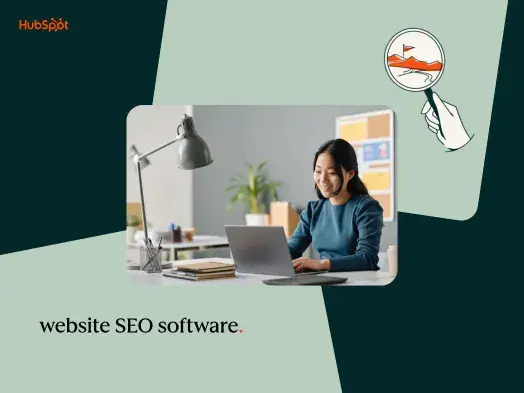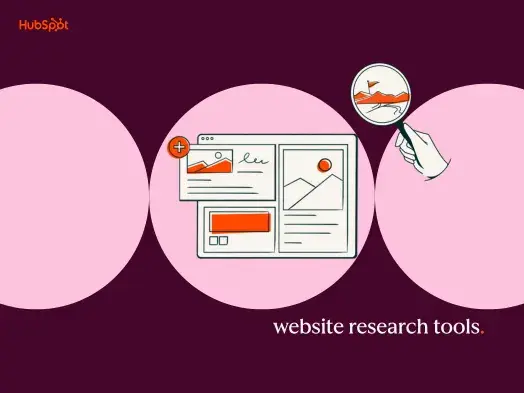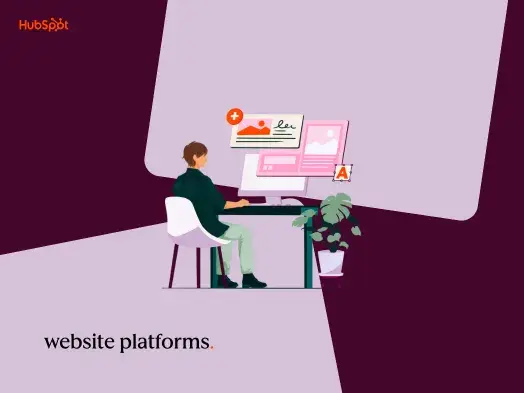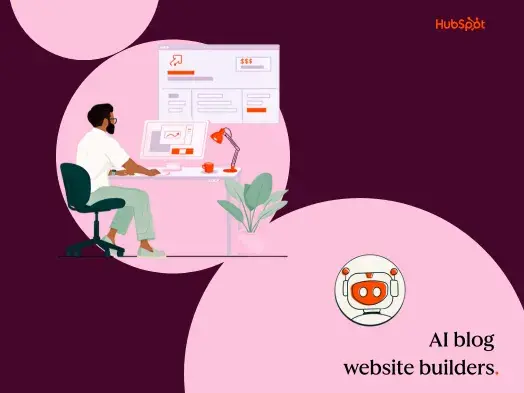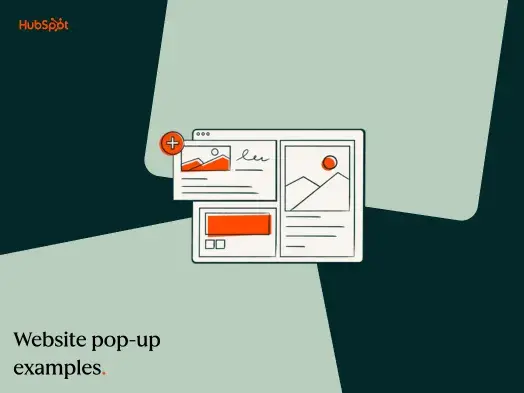Website monetization is how you turn your blog, website, or resource into a cash flow engine for you or your organization. These strategies work for any industry or niche, enabling anyone to — with time — bring in money from the Internet.
My colleague Jake Tripp, a content strategist and the director of marketing at Launch Fulfillment, shared that people often fall for the misconception that a lot of web traffic = a lot of revenue. To make top dollar from your site, you need to leverage strategies that are shown to work, time and time again. I’m going to be covering the basics of website monetization and dive into seven expert strategies to turn your site into a revenue maker.
Table of Contents
- What Is Website Monetization?
- How to Monetize Your Website
- How to Collect Funds
- Top Website Monetization Strategies
How to Monetize Your Website
The right approach for website monetization is going to vary from person to person, based on preference, type of website, and industry. Here are seven of the major approaches.
If you’d like more information about your options for website monetization, Si Willmore at Memberful has written an extensive guide how to make money online.
Ads
To monetize with ads, you use an ad network like Google AdSense that automatically selects relevant advertisements to show your audience. Then, you're compensated based on impressions, clicks, or conversions from the ad. This is an easy way to boost revenue, but you don’t have a lot of control over what ads are shown, and sometimes the ads decrease the quality of the user experience.

Membership
Memberships are another type of site monetization. Memberships include exclusive content for subscribers, which could be anything from articles or videos to access to a community. These can be intense to set up and require significant content efforts to maintain, but the key advantage of a membership is consistency in income.
Pro tip: “Almost anything can be turned into a membership site via HubSpot, Kajabi, Mighty Networks, or Circle. For budget-conscious buyers, you can even consider Squarespace,” says Liane Carrascoso from The Favorite Co.
Courses
If your website is geared toward educational content or can teach a valuable skill, it might make sense to include courses. Courses are gated content, guiding your users through modules on a specific topic. While creating a course is time-intensive, courses result in mostly passive income.
Ecommerce
Ecommerce monetization is one of the most common types of monetization, as it’s the selling of physical or digital products from your website as a storefront. Buyers can shop for products and check out entirely on your website — and you can create opportunities for users to sign up for deals, newsletters, or purchase additional items. However, to run an ecommerce store, you’ll have to have your own products to sell.

Donations
For non-profits or service organizations, it might make sense to monetize your website by adding the opportunity for visitors to donate. Donations are cause-based, so it’ll be specific to the organization whether a donation is the right approach for you. While donations won’t increase your profits, they are still a method of monetization. Your site will still be making money, it’s just going to a not-for-profit cause.
Sponsored Content
Sponsored content is content that features another brand that you’ve made an agreement or partnership with.
In sponsored content, you’ll highlight the brand in a blog or post a video. The goal is to raise awareness for your partner by leveraging your own web traffic, and you’re paid by making an agreement with the brand ahead of time. You’re generally paid a flat rate for the post or feature, so guaranteed payment is a plus. However, if done wrong, you can undermine your audience’s trust and your content’s impact will lessen.
Affiliate Marketing
Affiliate marketing means including specific affiliate links to other company’s storefronts or websites. When one of your users clicks a link and purchases a product, you get paid a percentage of the sale. While payment is performance-based, affiliate links are subtler than things like sponsored content or ads and, therefore, less likely to hinder your audience’s trust.
Pro tip: Tripp shared that while affiliate marketing has its benefits, it may be a less viable option in 2024. He said, “It’s likely you’ve heard about the March 2024 core update to Google’s algorithm. Since that update, Google received a great deal of backlash after some sites lost as much as 60% of their organic traffic seemingly overnight.
In response to these significant changes, Google has started rolling out a new update this September, which is trying to remedy some of the impacts of their March 2024 update. But until then, it’s not clear whether affiliate marketing is going to work as well as it has historically to monetize.”
How to Collect Funds
Fund collection varies based on preferences and selected monetization strategies. Some of the most common ways to collect funds from a website are:
- Online payment processor. Tools like Stripe, Paypal, Square, and CashApp allow users to pay with credit or debit cards.
- Crowdfunding platform. Link web pages or blog posts to Kickstarter or GoFundMe to raise contributions or donations.
- Invoicing platform. For sponsored content, you’ll likely get paid through a contractual agreement requiring an invoice.
- Direct to bank account. You can also collect payments through wire transfers or ACH payments, which lack fees but are generally more of a hassle for customers.
Carrascoso shared that most platforms leverage Stripe for payment collection, but when it comes to membership, you may want to use a specialized tool like Chargebee.
Top Website Monetization Strategies
Before you dive into website monetization, take a look at these tips from experts with loads of experience turning websites into revenue engines.
1. You have to spend money to make money.
Carrascoso shared an expectation-setting strategy — and there’s a reason it’s a cliche. She shared that monetizing your website comes with costs. Sometimes the costs are monetary, while other costs are just in time, but regardless, website managers should expect to expend some resources on making their website into a revenue engine.
2. Diversify your monetization methods.
Tripp emphasized the value of diversifying your monetization methods. With constant changes in best practices and technology, leveraging a couple different types of monetization is a good way to build a reliable website income.
Pro tip: I recommend using a tool like HubSpot’s Content Hub to keep track of your monetization methods. As a content manager, you can use HubSpot to manage membership content and put out affiliate and sponsored content, as well.
3. Get creative.
You can get creative with your website monetization. Rochelle Moulton, Founder of Be Unforgettable Media, was constantly being asked by non-prospects to “pick her brain.” She added a paid consult call to her services page that allows website viewers to make an appointment with her. Now, she’s made it a steady revenue stream all by itself.
4. Make sure your website works well on mobile.
In 2024, two-thirds of buyers from online shops purchased from their mobile device — and only a quarter of online shop visits came from desktops. As an SEO-oriented strategist, Tripp emphasizes the value of making sure your website runs well on mobile devices.
5. Always test your automation.
If you’re using a check-out on your site, Carrascoso encourages you to make sure you test, test, test. She says, “If you can, hire a secret shopper to test before you launch. Mistakes always happen, so double-check everything — you can find LOTS of marketing operation horror stories online from folks who didn’t test well enough.”
6. Don’t neglect the user experience.
Some website monetization strategies look like easy ways to make money, but they hinder the user experience. Whether it’s obnoxious pop-up ads or sneaky sponsored content, keep your customer in mind when you’re monetizing your site.
As a user, I’m really not a fan of consistent pop-ups. A singular pop-up or banner ad might be fine, but they often creep into disturbing my experience on the site, which makes me much less likely to buy or visit the site again.
7. It’s not going to happen overnight.
Both Carrascoso and Tripp reminded me that website monetization isn’t an immediate result. Tripp said, “People should recognize that building a profitable site takes time and ongoing effort.” So don’t expect your website to make you millions in the first week, even if it’s optimized perfectly.
Final Thoughts
As a writer, I’ve never been in charge of website monetization — but talking to these experts completely inspired me. Understanding the different routes to monetization, and some expert tips for putting them into place, make it seem a lot more accessible.
One of my key takeaways from this was Tripp’s tip about leveraging a few different channels. Between algorithm changes and varying customer interests, leveraging a few different monetization techniques keeps you from putting too many eggs in one basket.
Website Design


.png)
